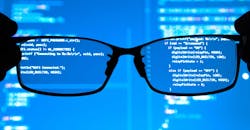Data Scientists Are in Short Supply, But Does Manufacturing Really Need Them?
Thanks to the Industrial Internet of Things (IIoT), manufacturers now have more data on their production processes and supply chains than ever before. This surplus of information has created increased demand for data scientists who can turn that data into actionable insights and work with artificial intelligence (AI). Studies by Indeed’s Hiring Lab show that since 2013, data scientist job openings across all industries have grown 256%, with a 31% increase in year-over-year postings as recent as December 2018.
While the demand for data scientists continues to run high, the pool of qualified candidates remains limited. According to a Workforce Report by LinkedIn, there is a nationwide shortage of nearly 152,000 people with data science skills. Further compounding the skills gap, many business leaders are looking for individuals with both extensive technical skills and well-developed business analytics skills. Finding a qualified candidate to walk in with both skillsets is often more like looking for a unicorn—neither really exists.
While organizations need data scientists, what is often overlooked is “bilingual” talent—people who can understand not only data science, but also the unique inner workings of the industry, business, and processes. Business value comes from organizing the right analytics team and bilinguals are linchpins of those teams. Bilingual talent can be harder to acquire, but if organizations can nurture the necessary skills among candidates and existing employees, they can create nimbler and more valuable workforces.
The value in bilingual talent
To address the data science skills gap, software developers have created new programs that can perform many of the analytical tasks previously reserved for data scientists. This has turned data science into a commodity and allowed everyday users to become “citizen data scientists” with a little bit of training. But simply having more citizen data scientists running analyses doesn’t necessarily deliver value to the organization.
What’s more vital is the ability to approach data and analytics from a business perspective. Bilingual talent can do that. They can turn data into predictive models, and then translate those models within the context of critical decisions and operations, such as for demand forecasting or preventative maintenance on production equipment. Moreover, they can clearly explain the derived insights, ideas, and plans of action to senior executives in a way that they understand. Bilingual talent can make for very inspiring leaders within a manufacturing organization, capable of driving significant positive change.
How to cultivate bilingual talent
Developing bilingual talent is not about cementing specific skills around technology, as that can be done with an amount of training. It is more about developing the flexibility to acquire new knowledge. Manufacturers should encourage T-shaped talent, as opposed to being I-shaped. The difference is I-shaped people have expertise in one specific area, like data science, while T-shaped people have both deep knowledge in one subject and a breadth of understanding of several others. For instance, an ideal individual would be someone who understands the business processes and has done some data science work, among other work with AI. It is easier for T-shaped individuals to interoperate with other use cases, technologies, and skills.
The ability to continuously learn new skills also helps ensure the longevity of the workforce. Currently, mastery of programming languages like Python and R is important to data science. But it is difficult to say if these will still be relevant in the next two to five years. Manufacturers should promote opportunities for employees to learn and reskill from each other. Create group learning environments, leveraging the collective intelligence of the entire workforce. This opens a cross exchange between people with different expertise, which is more conducive to bilingual talent and T-shaped skillsets. This is in stark contrast to most corporate learning and development programs, which focus on drilling in skills in traditional teacher-student seminars and classrooms. In reality, people learn better from each other and by doing, with context to their daily job.
At Genpact, we have seen these ideas at work firsthand with our Genome reskilling initiative, which is built on a cooperation with the Massachusetts Institute of Technology’s Center for Collective Intelligence. Genome focuses on using the collective intelligence of knowledgeable employees to crystallize, contextualize, propagate and continuously update skills for others. By concentrating on the collective—not individual—intelligence, we are able to create more future-proof workforces.
As the demand for data scientists continues to rise, the skills gap will only widen if manufacturers do not get proactive about cultivating the right talent. Organizations that embrace bilinguals will find a workforce that can apply advanced understanding of data, analytics, and AI to solve critical business problems. The search for solely data science skills will only be so valuable.
Amaresh Tripathy is global business leader, analytics, at Genpact, a global professional services firm focused on delivering digital transformation.
About the Author
Amaresh Tripathy
Global business leader, analytics
Amaresh Tripathy is global business leader, analytics, at Genpact, a global professional services firm focused on delivering digital transformation.
